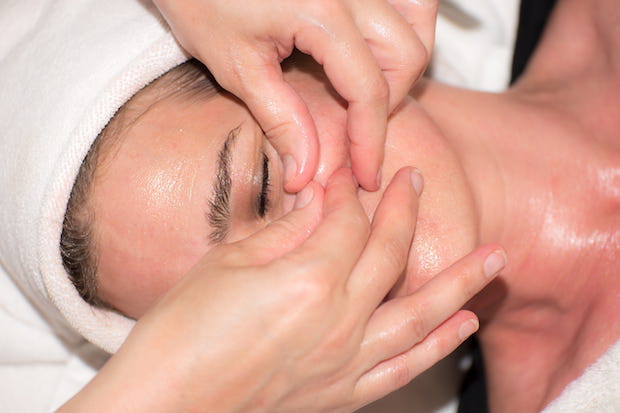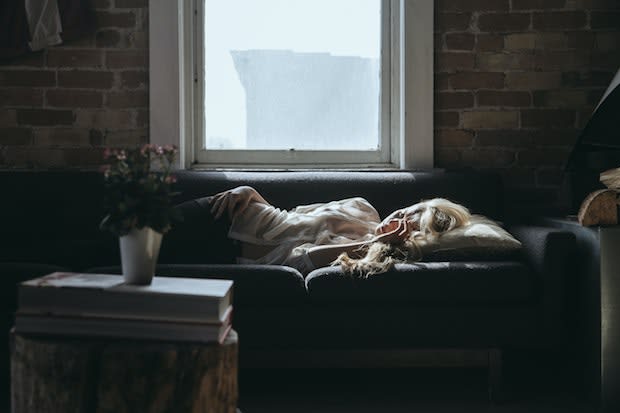Table of Contents
VI. Keep Your Stress Under Control
The Importance of Skin Health
The skin is the body’s largest organ and constantly comes into contact with the outside world. The skin is vital in protecting the body’s internal organs and holding in the body’s fluids. It is essential to keep the skin happy and healthy to protect from injury and the invasion of harmful microbes.
The skin can be injured by several things, including cuts, scratches, insect bites, burns, and rashes. Most commonly, you may experience acne, psoriasis, and rosacea. These disorders can cause pimples, rash, or redness of the skin, but there are several medications available to maintain your skin health. Your doctor may prescribe Retin A Gel (tretinoin) (Micro Gel Pump or cream), Oracea (doxycycline), or Tazorac (tazarotene) Cream (or gel).
Getting on top of your skin health is integral to a long and healthy life. If your skin is healthy, it can help maintain your internal processes' function and protection. Alongside prescription medications, there are several things you can do to improve your skin health. Read on to learn some helpful tips. [1]
What we put into our bodies has an effect on the organs as well as the skin. We can put many creams and lotions on our skin, but eating certain foods may also improve skin health. Foods such as mangoes have antioxidant properties that protect the skin, like collagen. Collagen is the most abundant protein in the body and helps replace and restore dead skin cells. Tomatoes and tomato paste have been found to help with UV light exposure. Research has found that eating more tomato paste in your diet helps protect against sunburns. After ten weeks, the study found that those who ate 40 grams of tomato paste per day had 40 percent less sunburn than those who did not eat tomato paste. The pigment in tomatoes called lycopene is thought to fight UV damage. [2] Other skin-healthy foods can include: Drinking alcohol has been shown to have several effects on the body. A few drinks may make us feel more relaxed, but if you drink excessively, it can affect your organs and the skin. Some studies have shown that a higher alcohol intake is associated with an increased risk of basal cell carcinoma and cutaneous squamous cell carcinoma. Basal cell carcinoma is the most common form of skin cancer and the most frequently occurring form of cancer. This cancer can be treated fully, but it can spread to other areas of the body and cause serious complications. [2] Smoking has a major effect on the health and appearance of the skin. Cigarettes contain thousands of toxins that damage collagen and elastin in the skin, which keep it firm and supple. This damage will accelerate the appearance of aging on the skin, making wrinkles appear on the face. Smoking causes sagging skin on the breasts and upper arms and increases your risk of skin cancer by 52 percent. You may also develop unsightly "smoker's lines," which are vertical lines that form around the mouth. [3] Keeping the skin moisturized is essential in locking in hydration of the skin cells. Hydrated skin cells smooth spaces between skin cells and helps retain moisture. There are several ways to keep the skin moisturized and free from irritants. To do this, you can take warm showers instead of using scalding hot water. To replenish your skin after washing, you can apply creams to your body and face to reapply moisture lost from your shower or bath. Your bathing routine can affect your body's moisture, but you can also add moisture to your home. Humidifiers can be very beneficial in adding moisture to the air within your house or apartment, especially during the winter months. Dry skin is typically harmless, but you may experience a greater incidence of skin cracking, redness, and inflammation if it is not cared for. Other moisturizing tips can include: Sleeping is an essential process in the healing and restoration of the entire body. When we sleep, the skin cells regenerate and helps collagen keep their volume and elasticity. There is more blood flow to the skin when we sleep, delivering nutrients to the skin. Proper sleep helps keep the skin moisturized and combats the signs of aging. In a study published by Clinical and Experimental Dermatology, researchers found that those who slept seven to nine hours a night had better-moisturized skin that could heal itself more efficiently when exposed to ultraviolet light. Those who slept less than five hours a night had a harder time healing from sunburns caused by UV light. Getting little sleep also increases the appearance of dark circles and wrinkles on the face. [4] Stress not only causes mental fatigue but can have physical effects on the body, including the skin. When you are stressed, the body produces stress hormones like cortisol. This hormone can cause the glands to produce more oil, increasing your risk of acne and other skin conditions. If you are stressed, you may be more likely to neglect your skincare routine, leaving the skin dirty and aggravating the skin cells. Breaking out in pimples or hives can also take a toll on your self-esteem, which may increase your stress even more. It is essential to keep your stress under control to keep your skin healthy and clear. Some helpful calming activities can include: The content in this article is intended for informational purposes only. This website does not provide medical advice. In all circumstances, you should always seek the advice of your physician and/or other qualified health professionals(s) for drug, medical condition, or treatment advice. The content provided on this website is not a substitute for professional medical advice, diagnosis, or treatment.
Healthy Diet
Avoid Alcohol & Smoking

Moisturize!
Get Plenty of Sleep

Keep Your Stress Under Control
